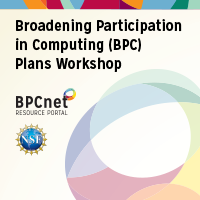Amplifying Resources for Inclusiveness in Computing: CS Teachers, It’s (Past) Time To Learn About Race
CRA is dedicated to creating an environment that is more welcoming, just, and equitable to all. In the Communications of the ACM article, “CS Teachers, It’s (Past) Time To Learn About Race,” Mark Guzdial encourages CS teachers to make changes to CS education that ensure everyone is welcome and supported.
From the article:
We have to change CS so that it serves the needs of our students and society. Using methods like Peer Instruction and curricula like Media Computation are steps in the right direction, since they are measurably better for women and underserved populations, but those are results from the few diverse students who even walk in our door — and too few CS teachers are even willing to adopt these small measures. We do not have a meritocracy. Our CS education systems are structured to disadvantage students who are not like us and the students currently in CS. Frankly, the game is rigged. We used to think that we were about helping students “How to Think Like a Computer Scientist.” But that’s just telling all these students that they have to be like us to succeed. Now we have to change how computer scientists think. We all have to change CS.
Get started educating yourself by reading Nicki Washington’s paper in SIGCSE 2020, “When twice as good isn’t enough: The case for cultural competence in computing.” Her paper is a great starting point because she directly addresses issues of undergraduate CS education. It’s not just about race, but today, race is the elephant in the room that we (speaking as a white and as a male CS professor, which describes most U.S. CS professors) have ignored for too long. My student Amber Solomon made me aware of intersectionality in her paper “Not just Black and not just a woman: Black women belonging in computing” (see link here). Efforts to attract more Black students to CS often assume Black men. Her experience as a Black woman in computing is different. As you add other identities (like transgender), you realize that when we design our classes for the majority of our students, we are making explicit and implicit choices that make it harder for other groups.
…
If you read nothing else from this essay:
Please read these two short posts from my former colleagues at Georgia Tech, Dean Charles Isbell of the College of Computing (see post here) and Kamau Bobb, Senior Director of the Center of the Constellations Center for Equity in Computing (see post here). The life experience of our students and colleagues who are BIPOC (Black, Indigenous, and People of Color) is significantly different than that of the majority of people in CS today. If we ignore that, we do them a disservice.
We have ignored that. We have to correct our mistakes.
Click here to read the full post in CACM. We hope this inspires you to take action.




